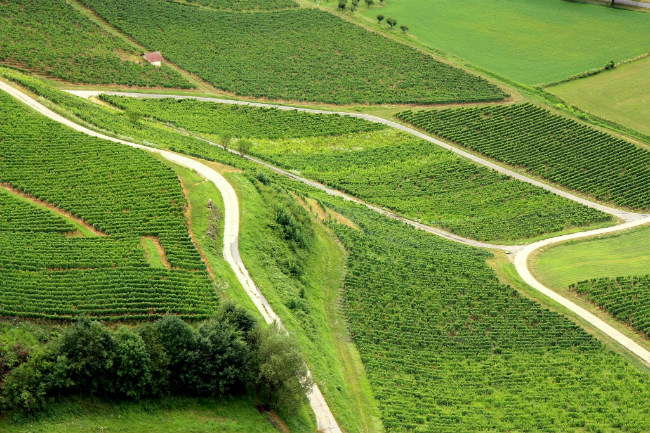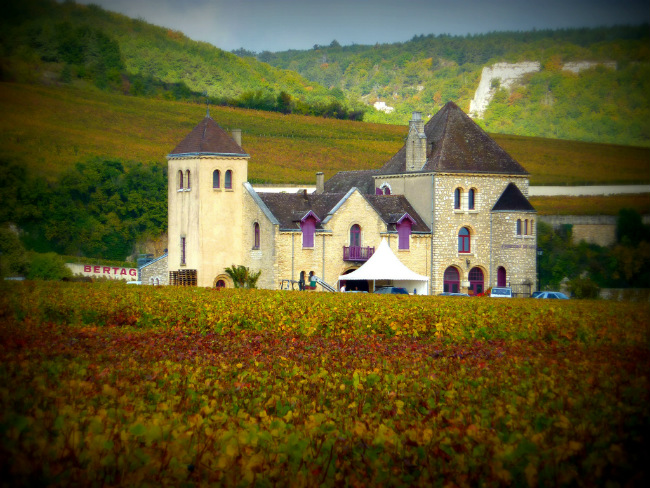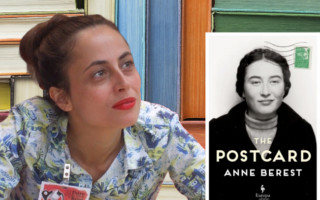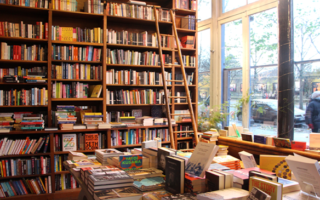Book Reviews: The Lost Vintage by Ann Mah
- SUBSCRIBE
- ALREADY SUBSCRIBED?
BECOME A BONJOUR PARIS MEMBER
Gain full access to our collection of over 5,000 articles and bring the City of Light into your life. Just 60 USD per year.
Find out why you should become a member here.
Sign in
Fill in your credentials below.
Burgundy has always seemed to me the most beautiful part of France. At least its rich, verdant landscape and even its moody, often stormy weather, touches something deep in my soul in a way that other places do not.
That is one of the reasons, though not the only one, that I enjoyed reading The Lost Vintage— a novel by Ann Mah, which is set in Burgundy, not far from my (also very beautiful!) home in southern Champagne.
 The Lost Vintage includes many lyrical descriptions of the terrain, the sky, the rich greens, browns, and blues of Burgundy; and it captures the rhythms of seasonal and daily life in this part of the world, which tends to be dominated by the growing of grapes, the harvesting of them, the turning them into wine.
The Lost Vintage includes many lyrical descriptions of the terrain, the sky, the rich greens, browns, and blues of Burgundy; and it captures the rhythms of seasonal and daily life in this part of the world, which tends to be dominated by the growing of grapes, the harvesting of them, the turning them into wine.
The protagonist, Kate, is the California born and bred child of a French mother who left her home in Burgundy many years ago with no intention of returning, and who prefers to speak of her life there as little as possible. Kate doesn’t understand why this is: and her mother’s distant attitude toward her homeland turns out to be one mystery wrapped within other mysteries that drive this very compelling story.
The Lost Vintage is another story—there are so many of them, and for me they never get old—in which a main theme is how the social and psychological wounds suffered during the years France was under Nazi Occupation still endure; and how the secrets festering underneath the surface of life there continue to cause harm, damage relationships, and prevent people from finally healing from the multigenerational wounds that were inflicted during that time.
It’s hard to say very much about the plot without introducing spoilers, so I won’t go into a lot of detail. Suffice it to say that when Kate, a sommelier who is preparing for her third try at passing the rigorous Master of Wine test, returns to her cousin’s home in Burgundy for a few weeks, she becomes steeped in much more than local viticulture; while helping him clean out the basement of his home, she makes discoveries about their family history that uncover some of those old wartime wounds, and enduring confusion about who resisted, who collaborated, who escaped punishment for their crimes, and who did not. As the story unfolds it becomes clear just how hard it can be to know “what really happened,” especially in a time of war, when both courage and loyalties are severely tested. In this sense, the story demonstrates the painful ambiguities of life that are always present, but exacerbated in time of war: and how life is never as black and white, people neither as completely good nor completely bad, as we want them to be.
And while this aspect of the story is pretty dark, it is really not a grim story. For those who appreciate French wines and cuisine, for example, there are mouthwatering descriptions and delicious details about French meals and wines (the author is a very accomplished food and travel writer); and connoisseurs, or would-be connoisseurs will appreciate being able to “eavesdrop” on conversations between sommeliers discussing the things sommeliers know about. And there are plenty of light moments, humorous asides, and astute cultural observations to enjoy as the tale unfolds.
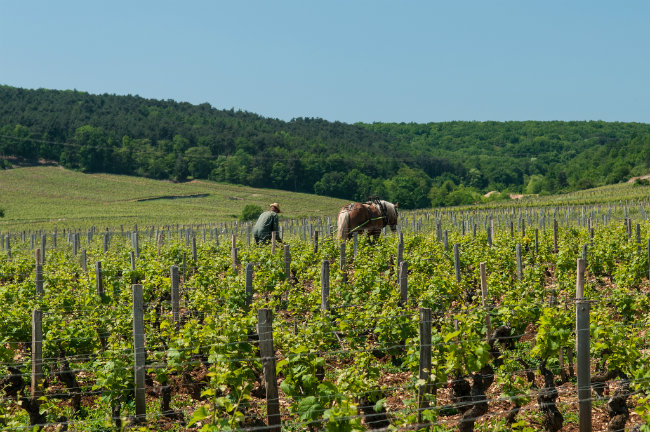
A vineyard worker manually tills the soil near Vosne-Romanée in Burgundy. Photo: Anna & Michal/ Flickr
This is also a love story, and again without spoiling anything I will just say it is quite satisfying to read a love story that is not about two young (or for that matter older) lovers falling easily and passionately in love, with the implication that they will go on to live happily ever after. (Far too many of us know by now that things do not always turn out that way.) During her time in Burgundy, Kate and her first love, Jean-Luc, reconnect, and although there appears to be a remaining mutual attraction, there is also a lot of unresolved hurt and anger. Will they end up back together, or will Jean-Luc remain with the attractive young woman he’s with now? You’ll just have to read the book if you want to know, and you will have to read all the way through to the end.
Which is well worth doing, for this, and many other reasons.
For more Bonjour Paris book reviews, click here. Purchase the book on Amazon below.

